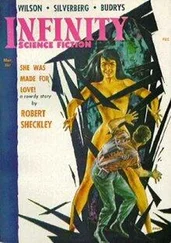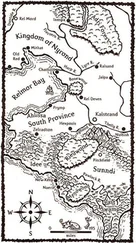Kate Stephens - American Thumb-prints
Здесь есть возможность читать онлайн «Kate Stephens - American Thumb-prints» — ознакомительный отрывок электронной книги совершенно бесплатно, а после прочтения отрывка купить полную версию. В некоторых случаях можно слушать аудио, скачать через торрент в формате fb2 и присутствует краткое содержание. Жанр: foreign_prose, foreign_antique, на английском языке. Описание произведения, (предисловие) а так же отзывы посетителей доступны на портале библиотеки ЛибКат.
- Название:American Thumb-prints
- Автор:
- Жанр:
- Год:неизвестен
- ISBN:нет данных
- Рейтинг книги:3 / 5. Голосов: 1
-
Избранное:Добавить в избранное
- Отзывы:
-
Ваша оценка:
- 60
- 1
- 2
- 3
- 4
- 5
American Thumb-prints: краткое содержание, описание и аннотация
Предлагаем к чтению аннотацию, описание, краткое содержание или предисловие (зависит от того, что написал сам автор книги «American Thumb-prints»). Если вы не нашли необходимую информацию о книге — напишите в комментариях, мы постараемся отыскать её.
American Thumb-prints — читать онлайн ознакомительный отрывок
Ниже представлен текст книги, разбитый по страницам. Система сохранения места последней прочитанной страницы, позволяет с удобством читать онлайн бесплатно книгу «American Thumb-prints», без необходимости каждый раз заново искать на чём Вы остановились. Поставьте закладку, и сможете в любой момент перейти на страницу, на которой закончили чтение.
Интервал:
Закладка:
And the weapons at hand to fight it were so few! Materialism on every hand. And it was plain, also, that here was but an eddy in the wave—that the impulse toward brodstudien was undoubtedly but a groping forward in the great movement of the half-century that has endowed realschulen from St. Petersburg to San Francisco, and is perhaps but the beginning of the industrial conquest of the world—in its first endeavors necessarily crippled, over-zealous and impotent of best works.
Yet in the face of every concession there came anew to your conscience the conviction, haunting unceasingly, of the need of the idea in academic life, of the need of the love of study for its own sake, of a broader education of the sympathies, of greater activity in the intangible world of thought and feeling—desires of souls “hydroptic with a sacred thirst.” To these alone did it behoove us to concede, for through the spirit alone could the “high man” sustainedly lift up his heart—
“Still before living he’d learn how to live—
No end to learning.
Earn the means first—God surely will contrive
Use for our earning.
Others mistrust and say, ‘But time escapes,—
Live now or never!’
He said, ’What’s Time? leave Now for dogs and apes,
Man has Forever.’”
The ratio of Hesperus students who chose the old form of scholastic training, called through long centuries the Humanities, was some little time ago not more than one-fifth of those in the department of literature and arts. Since the number was so small—all departments would then hardly count five hundred students—the growth was favored of that most delightful feature of small-college life, friendship between instructor and undergraduate. Such offices often grew to significant proportions during a student’s four collegiate years. All genialities aided them; and nothing sinister hindered.
The young folks’ hearts were as warm as may be found upon any generous soil, and they held a sentiment of personal loyalty which one needed never to question. They went to their University, after such longing and eagerness, so thoroughly convinced that there was to be found the open sesame to whatever in their lives had been most unattainable, that their first attitude was not the critical, negative, which one notices in some universities deemed more fortunate, but the positive and receptive. If they did not find that which to their minds seemed best, had they not the inheritance of hope?—a devise which Hesperus earth and air entail upon all their children, and upon which all are most liberally nurtured.
Then the Hesperus youth had a defect, if one may so put it, that aided him materially to a friendly attitude with his instructors. He was, with rare exceptions, as devoid of reverence for conventional distinctions as a meadow-lark nesting in last year’s tumble-weed and thinking only of soaring and singing. In this, perhaps, is the main-spring of the reason why nearly every student, either through some inborn affinity or by election of studies, drifted into genial relations with some member of the faculty.
The pleasantest part of my day’s work used to be in the retirement of the Greek study and from eight to nine in the morning. Never a student of mine who did not come at that hour for some occasion or need. One man snatched the opportunity to read at sight a good part of the Odyssey. Another took up and discussed certain dialogues of Plato. Another who aimed at theological learning studied the Greek Testament and the “Teaching of the Twelve Apostles.” Others came in to block out courses of work. Still others were preparing papers and gathering arguments, authorities, and data for debating societies and clubs.
In that hour, too, a sympathetic ear would hear many a personal history told with entire frankness and naïveté. One poor fellow had that defect of will which is mated at times with the humorous warmth which the Germans call gemüth, and the added pain of consciousness of his own weakness. Another clear-headed, muscular-handed, and ready youth measured his chances of getting wood to saw,—“just the exercise he needed, out of doors,”—horses to groom, and the city lamps to light, to earn the simple fare which he himself cooked. Many a pathetic story found tongue in that morning air, and times were when fate dropped no cap of recognition and granted no final victory. In hearing the details of hope deferred, of narrow estate and expansive ambition, you longed for the fabled Crœsus touch which turned want to plenty, or, more rationally, you projected a social order where the young and inapt should not suffer for the sins of others, but be within the sheltering arms of some sympathetic power.
There was the mildness of the chinook to this social blizzard, however, for groups moved even in the dewy hour of half-past eight toward the open door of the Greek lecture-room, laughing at the last college joke or secret society escapade, and forecasting who would be the next penitent before the council. Also certain youths and maids, between whom lay the engagement announced by a ring on the heart-finger—these one might see hanging over and fingering—
“Vor Liebe und Liebesweh”—
volumes lying upon my table, and in their eagerness and absorption of the world in two, dog-earing the golden edges of ever-living Theocritus. And why not? Such entanglements in the web of love oftenest differed in no way from the innocence and simplicity of the pristine Daphnes and Coras. They were living again, the Sicilian shepherd and shepherdess, and wandering in the eternally virid fields of youth. The skies and trees and waters were merely not of Trinacria. But Hesperus heavens omitted no degree of ardor.
And had you seen her, you would never have blamed the youth for loving the college maid. She has the charm abloom in the girlhood of every land, and most of all in this of ours. Physically she differs little from her sister in Eastern States. Her form is as willowy. She has, except in the case of foreign-born parents, the same elongated head and bright-glancing eye. Her skin sometimes lacks in fairness owing to the desiccating winds of the interior; but there is the same fineness of texture.
Power of minute observation and a vivacious self-reliance are characteristics of the girl of the University of Hesperus—and, indeed, of the girl throughout the West. She sees everything within her horizon. Nothing escapes her eye or disturbs her animated self-poise. She has not the Buddhistic self-contemplation the New England girl is apt to cultivate; nor is she given to talking about her sensations of body and moods of mind. I never heard her say she wanted to fall in love in order to study her sensations—as a Smith College alumna studying at Barnard once declared. She rarely pursues fads. Neither is she a fatalist. And she never thinks of doubting her capacity of correct conclusions upon data which she gathers with her own experience of eye and ear. From early years she has been a reasoner by the inductive method, and a believer in the equality and unsimilarity of men and women. Undeniably her mental tone is a result of the greater friction with the world which the girl of the West experiences in her fuller freedom. Conventionalism does not commonly overpower the individual—social lines are not so closely defined—in those States where people count by decades instead of by centuries.
And what is said of this University girl’s observing faculties is in nowise untrue of her brother’s. Nature, the most Socratic of all instructors and the pedagogue of least apparent method, seems actually to have taught him more than his sister, as, in fact, the physical universe is apt to teach its laws more clearly to the man than to the woman, even if she hath a clearer vision of the moral order. Perhaps the man’s duties knit him more closely to physical things.
Читать дальшеИнтервал:
Закладка:
Похожие книги на «American Thumb-prints»
Представляем Вашему вниманию похожие книги на «American Thumb-prints» списком для выбора. Мы отобрали схожую по названию и смыслу литературу в надежде предоставить читателям больше вариантов отыскать новые, интересные, ещё непрочитанные произведения.
Обсуждение, отзывы о книге «American Thumb-prints» и просто собственные мнения читателей. Оставьте ваши комментарии, напишите, что Вы думаете о произведении, его смысле или главных героях. Укажите что конкретно понравилось, а что нет, и почему Вы так считаете.












